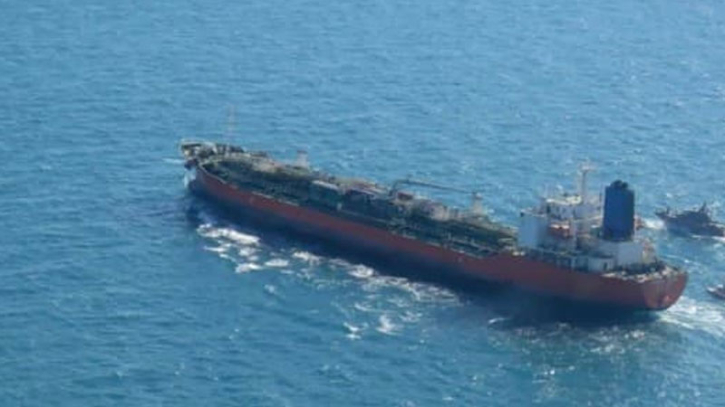US accuses Russia of breaking UN sanctions on fuel shipped to N. Korea

The United States says Moscow is violating UN-imposed limits on total shipments of fuels to North Korea, signalling it is preparing more sanctions against entities involved in facilitating Pyongyang's access to petroleum products above the UN-mandated levels.
The UN Security Council has imposed a limit of 500,000 barrels of annual supply of all refined petroleum products to the Democratic People's Republic of Korea (DPRK), as North Korea is officially known, in an effort to curb its nuclear weapons program.
Russia, however, has been shipping refined oil products to its ally, and these volumes appear to exceed UN Security Council limits, White House says.
Russia vetoed at the end of March a UN Security Council proposal to extend the mandate of a UN panel that monitors the implementation of the sanctions against North Korea, as Moscow and the West continue to grow apart in international affairs.
The proposal of the UN Security Council doesn't change the existing sanctions against North Korea in response to its nuclear weapons program and tests, but it doesn't extend the monitoring of these sanctions beyond the end of April, when the mandate expired, either.
In the 15-member council, Russia voted against the extension of the mandate of the monitoring panel, China abstained, while all others voted in favor.
As a result of the Russian veto, the panel monitoring the sanctions implementation against North Korea was disbanded on May 1.
On May 2, White House national security spokesperson John Kirby said that "At the same time that Moscow vetoed the panel's mandate renewal, Russia has been shipping refined petroleum from Port Vostochny to the DPRK."
In March alone, Russia is estimated to have shipped more than 165,000 barrels of refined petroleum to North Korea, Kirby told reporters.
Russia can keep these shipments indefinitely, considering the proximity of Russia's Far East and North Korean commercial ports, he added.
"The United States is going to continue to impose sanctions against all those working to facilitate arms and refined petroleum transfers between Russia and the DPRK," Kirby said.
More sanctions against those involved in petroleum product transfers to North Korea could come soon, U.S. State Department spokesperson Matthew Miller said at a briefing on May 2.
The United States is "currently working with our partners, including Australia, the European Union, Japan, New Zealand, the Republic of Korea, and the United Kingdom to announce new coordinated sanctions designations this month," Miller said.
The U.S. and South Korea have already joined forces to try and stop oil shipments to North Korea that contravene UN sanctions. The two countries set up at the end of March a bilateral Enhanced Disruption Task Force (EDTF) to counter illicit efforts by North Korea to circumvent sanctions concerning the procurement of refined petroleum.
"Through EDTF, the United States and ROK are pursuing a wide range of joint actions to disrupt DPRK refined oil procurement networks, including by exposing DPRK sanctions evasion activities, reviewing options for autonomous sanctions designations, and engaging private sector and third-party actors throughout the region who facilitate – either knowingly or unwittingly – the DPRK's oil procurement networks," the U.S. State Department said.
Around that time, reports emerged that Russia is said to have supplied oil directly to North Korea this year as both regimes are openly defying UN sanctions on sales of petroleum to Pyongyang.
Satellite images, which UK think-tank Royal United Services Institute has shared with the Financial Times, have shown that in March alone, at least five tankers of North Korea have traveled to load petroleum products from the Vostochny Port, the biggest port in Russia's Far East.
With a suspected oil-for-weapons deal with North Korea, Russia appears to have boosted its oil deliveries to Kim Jong-Un in exchange for munitions and other military equipment from North Korea to use in its war in Ukraine.
.png)




